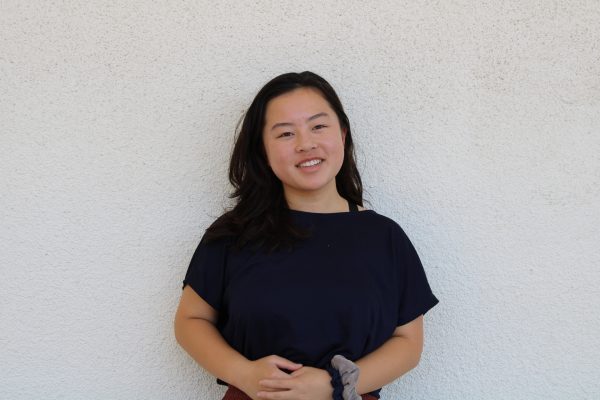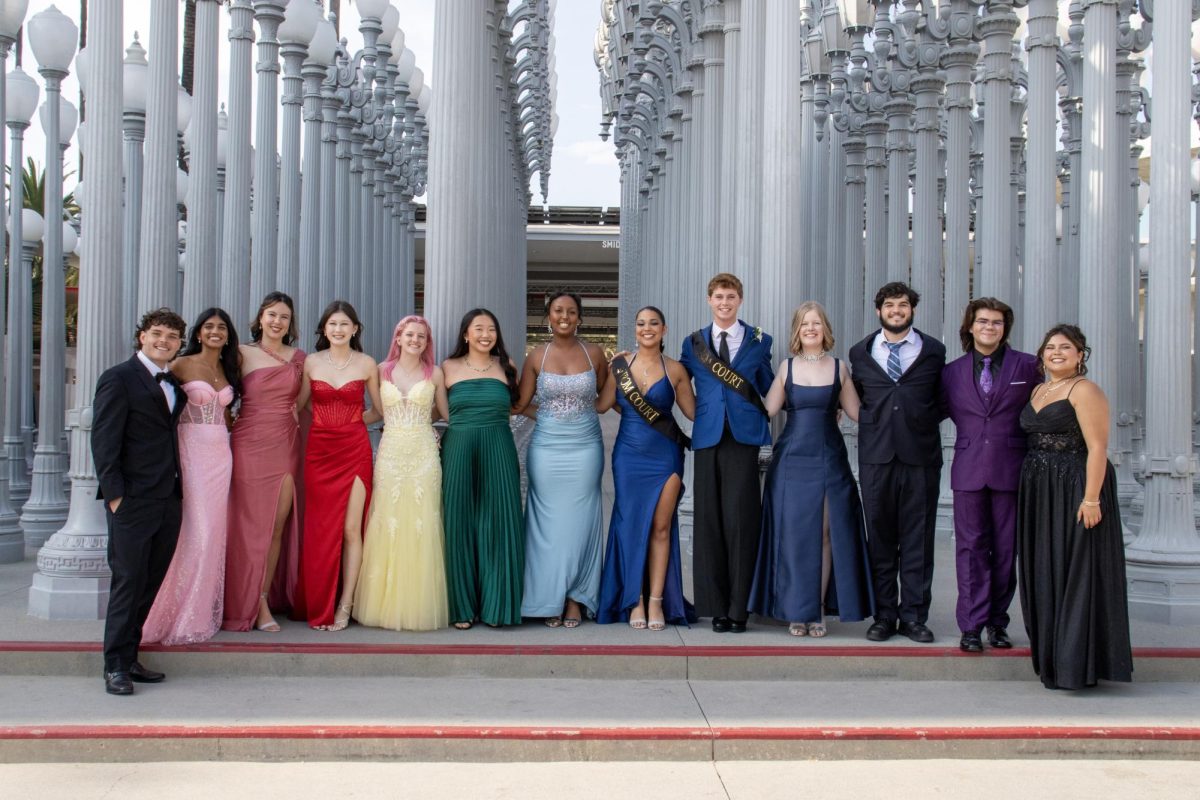Myth-Busting the Origins of Thanksgiving— and the Problematic History Behind It

Art/Photo by Sidney Hinks
Though Thanksgiving is normally seen as a time of joy and celebration, AP World History Teacher Ms. Hignight believes that it should be a solemn time of reflection due to the problematic history behind it. Despite this, she believes that it doesn’t make Thanksgiving any less of a time to be grateful.
November 30, 2022
When students imagine Thanksgiving, the thoughts of turkey, squash, and a week-long break inevitably come to mind. The appeal of stuffing yourself with roasted turkey and drinking holiday season special Starbucks drinks is an inviting one, even more so when you’re snuggling under a cozy blanket beneath a cold sky. You might vaguely recall a Thanksgiving cartoon or children’s book, filled with pictures of white settlers happily feasting with cheerful Native Americans with no shortage of pumpkin pie. Unfortunately, while Thanksgiving may give us numerous reasons to be grateful, the controversial origins behind it might make you think twice about seeing it so merrily.
When you think of Thanksgiving, the image of a feast with both indigenous and white guests might automatically come to mind. However, AP World History Teacher Ms. Hignight explained that further research conducted showed that Native Americans had been celebrating quarterly harvest for centuries, well before the arrival of the Mayflower and the pilgrims it had carried. “Native Americans have been celebrating annual harvest festivals for centuries. They would celebrate harvests about four times a year, with the turning of each season. Natives have long recognized the value of spending quality time with loved ones and being grateful for all the plentiful food and resources provided by Mother Earth,” she described. Ms. Hignight further clarified the reasoning behind such celebrations was not because of interactions with the pilgrims, but rather because of cultural reasons. “Many Native Americans still celebrate Thanksgiving with big feasts and giving thanks, but that is showing the continuity of their traditional culture rather than being a celebration of meeting the Pilgrims,” she added insightfully.
Ms. Hignight further explained that this story was a false one, painted by none other than former president Abraham Lincoln during the Civil War for political reasons. The alliance formed between the two parties was not formed for the sake of peace, but rather for exclusive benefits for both sides. “The Wampanoag people did form a mutually beneficial alliance with the Plymouth Rock pilgrims to help make themselves stronger against rival tribes. The pilgrims did this because they needed help from the natives to learn how to hunt and harvest crops that were unknown to them,” she affirmed. “They did not actually sit and have a feast together or a big party. This myth was created during the Civil War as Lincoln declared Thanksgiving a national holiday because he was looking for an opportunity to unite a war torn country,” she explained coolly.
Unfortunately, these shocking revelations don’t end there. What began as a testy, unstable alliance with fifty years of uneasy treaties transformed into a full-blown battle between the Native Americans and white settlers, with the latter side emerging victorious after a long and bloody feud. This marked the beginning of a lengthy history of Native American oppression, the after-effects of such are still felt today. “Eventually, the alliance was destroyed by one of the most horrific battles between European settlers and indigenous peoples, known as King Philip’s War. The death toll was high on both sides, however, it ended with the European settlers as the victors,” Ms. Hignight sighed. “Most Americans only know one side of this story. However, I think the full truth and the ending are huge elements of the story that don’t really get talked about, and I wish they did,” she added sadly.
Children all around America are regularly exposed to misconceptions and stereotypes about Thanksgiving, and Ms. Hignight proved to be no exception, recalling a past elementary school event to mind where she had thought of Thanksgiving as a positive celebration — and then becoming shocked to find out the true nature of it. “When I was in elementary school, I remember making headdresses and pilgrims hats out of construction paper and having a big pot luck at school. So, I grew up thinking the first thanksgiving was this wonderful event uniting the two groups of people. As I grew up and learned more about the actual events of Thanksgiving, I couldn’t help but feel like that elementary experience was just a charade, since it wasn’t even close to being an accurate portrayal of the first Thanksgiving,” she stated. Social Science and US History Teacher Mr. Hettinger also weighed in on how the holiday in itself had become increasingly fictionalized- a holiday for companies to capitalize on out of desire for money rather than festive gratitude. “To me, I feel like the holiday has really evolved to become more commercial activity where you gorge on food and go Black Friday shopping. It’s more like we’re sitting around indulging ourselves rather than reflecting on the spirit of humility and reflecting being grateful for what we don’t deserve,” he stated placidly. Despite this, Mr. Hettinger still hopes that American society can learn to appreciate the true essence of Thanksgiving- gratitude rather than good Black Friday sales or an elementary school feast based off of a fictitious event. “I still feel that we can let the origin story myth of the pilgrims and the Native Americans go, and instead focus on early Thanksgiving traditions during the Civil War and after the revolution. It encourages us to embrace the spirit of thankfulness and humility, and being grateful for things we have,” he expressed.
Unfortunately, the reality of Thanksgiving is a fact that many children remain unaware of, as there is lack of education on the topic. As Thanksgiving is portrayed as a positive event, it should also be noted that this perspective is narrated from that of white settlers — and not that of Native Americans. From the perspective of indigenous peoples, Thanksgiving could actually be considered as a time of sorrow. “This positive portrayal really only reflects the European perspective, since for many Indigenous people, thanksgiving is actually a day of mourning. For Native Americans, Thanksgiving marks a turning point in their history. This marked the beginning of years of oppression, their ancestors’ land being stolen from them, and the struggle to maintain their traditional cultures. Due to the gravity of this moment, I believe it should be a holiday approached with more sensitivity,” Ms. Hignight explained solemnly.
Although such misconceptions about Thanksgiving can be considered harmful, becoming aware of these misgivings can reduce the chance of ignorance — ignorance that could blind us all to seeing the truth of what needs to be viewed. Despite this, if we finally correct such mistakes, it’ll be something to be grateful for — during Thanksgiving and beyond.





